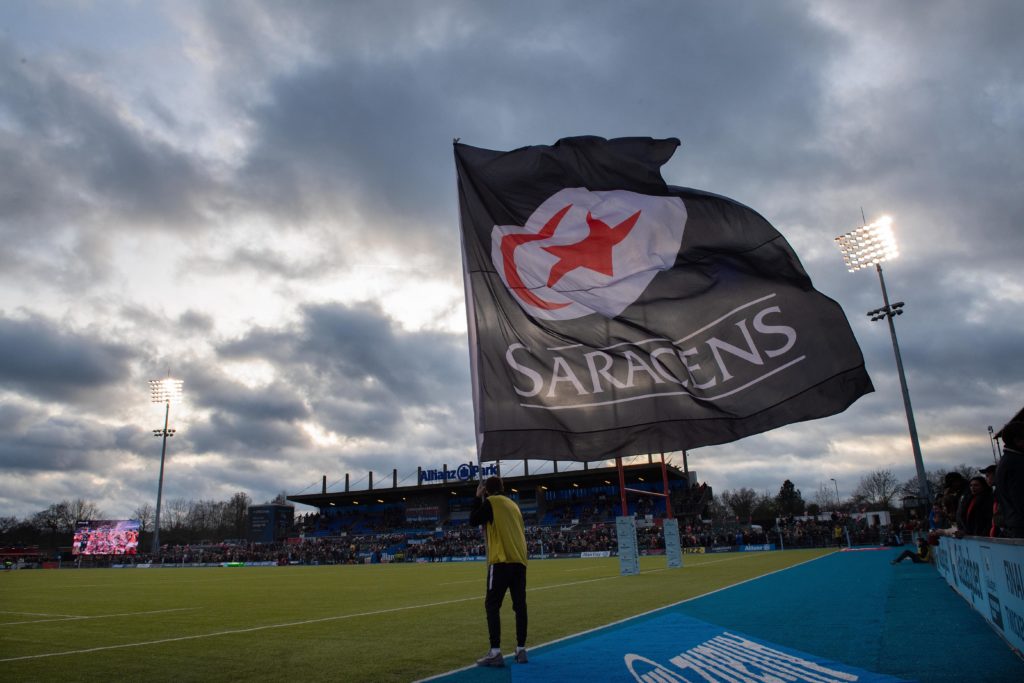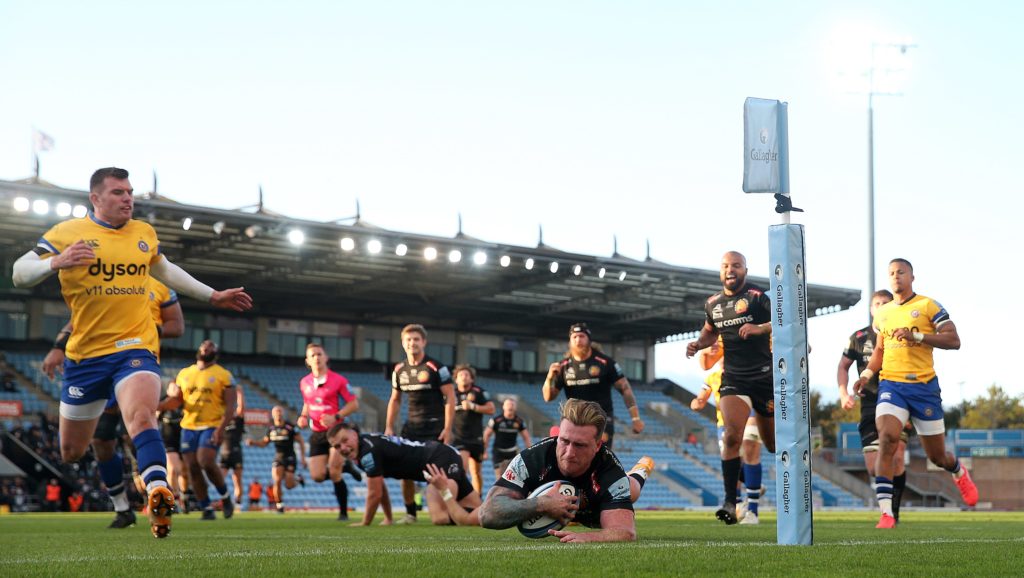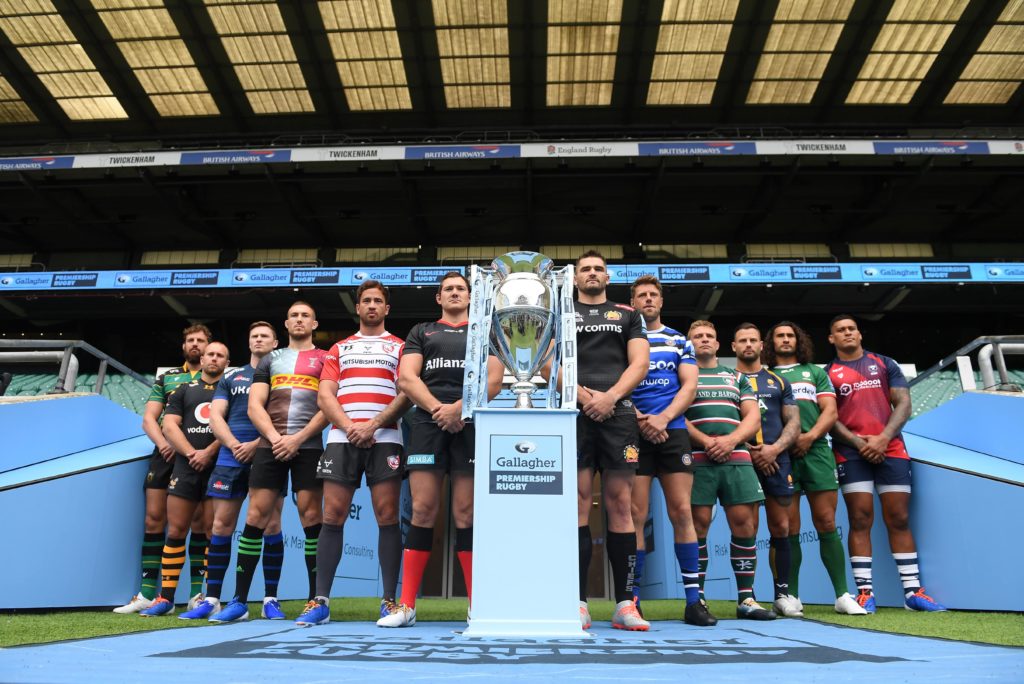When The Sun and Guardian headline writers take an indistinguishably negative view of a league’s governance you can be sure that league is moving deep into the proverbial doodah.
Described this week by both papers as “bungling” after back-to-back interviews with Premiership Rugby’s long-standing rugby director Phil Winstanley and then by publicity-shy chief executive Darren Childs, the top men of England’s top league are currently encountering considerably more muck than brass. To use another scatological description: the shit is hitting the fan.
Let’s be clear, the coronavirus pandemic is revealing even the cleanest of operations have some dirty linen. Almost no one bar the manufacturers of PPE, hand sanitiser and outdoor marquees have not been exposed to some degree.
But while some organisations have muddled through and made the best of a messy situation others, notable among them English professional rugby union’s league administrators, have made an already dire situation palpably worse.
Premiership Rugby as an organisation has been unfit for purpose for several years now. Ever since the catastrophically short-sighted decision, made on former chief executive Mark McCafferty’s watch, to cover-up an internal investigation into alleged salary cap breaches.
Some of us, it should be said, are not remotely surprised.
Because Premiership Rugby as an organisation has been unfit for purpose for several years now. Ever since the catastrophically short-sighted decision, made on former chief executive Mark McCafferty’s watch, to cover-up an internal investigation into alleged salary cap breaches by two or very possibly three clubs in 2015, it has shown itself to be unwilling to allow the antiseptic of sunlight to shine into its darkest recesses.
Last year the Saracens scandal was finally made public, four years after it was first reported, but Premiership Rugby’s abject failure to report four years earlier had already holed the organisation below the waterline. The reputational damage had been done. Trust had been lost ad infinitum.
The appointment of former television executive Childs as McCafferty’s replacement briefly hinted at a more transparent future. Some even hoped for a degree of moral fortitude around pivotal issues such as player welfare and fixture scheduling which Childs’ predecessor was never willing or able to deliver. But here we are, in the midst of professional rugby’s greatest ever crisis, and Childs has gone missing in action.

“Don’t worry my boy, if you should falter remember that Captain Darling and I are right behind you,” Field Marshal Haig told Private Baldrick following the latest order to send 1000 of young men over the top to near certain death in no-man’s land in aid of another “Big Push”.
“About 35 miles behind you,” quipped Captain Blackadder.
With dirt flying left, right, front and centre, backroom staff being sacked through no fault of their own, players being asked to play twice in a week and coronavirus ripping through some clubs with abandon, Premiership Rugby’s chief executive has given two interviews in 200 days. It hardly smacks of leadership. Premiership Rugby is failing now just as it has failed for so many years before. The woefully ineffective Childs is just a symptom of a rugby’s cosy, long-lasting malaise which sees conflicted interests at every turn. Just ask Lord Myners.
Despite the myriad of failings highlighted by Myners in his trenchant report into historic salary cap breaches published earlier this year, Premiership Rugby appears to have done next to nothing to improve governance or indeed its tarnished reputation.
Some have given credit to Premiership Rugby for getting the league up and running again following the hard-stop necessitated by lockdown in March. Admittedly from an operational and administrative point of view it has been a terrific effort. The players, as ever, have done their bit and more.
Phil Winstanley played how many hundred games for Sale and is best friends with their director of rugby, you say? Why wouldn’t we put him in charge of deciding whether his former club should be allowed to reschedule a match despite 19 positive coronavirus tests and every single other club in the league – not to mention Public Health England – screaming for the match to be abandoned? What could possibly have gone wrong? Errr…
Some have given credit to Premiership Rugby for getting the league up and running again in any form whatsoever following the hard-stop necessitated by lockdown in March. Admittedly from an operational and administrative point of view it has been a terrific effort by under-pressure support staff across the English league. The players, as ever, have done their bit and more.

But in terms of leadership the decision to plough on once once again exposed the abject lack of vision and inability to look past short-term cashflow to long-term sustainability which has suffocated professional rugby since day one.
With Saracens already relegated after finally being formally exposed, there had never been a greater opportunity to take a breather, step back and restructure a league and system which was already operating with no spare capacity. Rather than unilaterally slash players wages while simultaneously almost doubling their playing demands, why not work with them to reform, rejuvenate and replenish a league which had long since become unviable? But no, they ploughed on head first, because that’s what the English professional game does. Work harder lads. Get your heads down. What are you moaning about?
This is a disaster for Premiership Rugby and all the clubs involved. I’m very worried about what the future for English professional rugby is. Nobody will be able to sustain this.”
Peter Tom, Leicester Tigers chairman
“This is a disaster for Premiership Rugby and all the clubs involved,” said Leicester Tigers chairman Peter Tom recently. “I’m very worried about what the future for English professional rugby is. Nobody will be able to sustain this.”
But for all the undeniable financial damage the absence of crowds is doing to English professional rugby in the immediate term, let us not pretend things were rosy before. Last year a Rugby Paper survey revealed that in the 2017/18 season Premier Rugby’s 13 principle shareholders including London Irish lost £44.4million between them with only Exeter Chiefs turning a profit of around £700,000. That was by no means a one off, by the way. On Premiership Rugby’s watch, English rugby’s elite clubs have been losing money hand over fist ever since the sport became professional. England’s World Cup win in 2003 proved a false commercial dawn as clubs got greedy and the salary cap, which at the time was being almost universally breached, was inflated rather than policed. The losses have been seismic ever since.
Indeed, what of the repeated calls for transparency from interested observers, notably players forced into pay cuts, querying where the £220m of CVC capital holdings cash has gone? Those calls have gone unanswered.

Professional rugby entered the pandemic with an underlying health condition.
In its current form, and under its current leadership, it is not sustainable and the sooner we accept that, the sooner we can work out a way to rebuild it in a way which will allow the sport we love to exist for generations to come.
But in a world gripped with uncertainty and confused by wilful obfuscation one thing is crystal clear; Premiership Rugby needs a thorough clean out to repair its shattered reputation.
If you’ve enjoyed this article, please share it with friends or on social media. We rely solely on new subscribers to fund high-quality journalism and appreciate you sharing this so we can continue to grow, produce more quality content and support our writers.



Comments
Join free and tell us what you really think!
Sign up for free